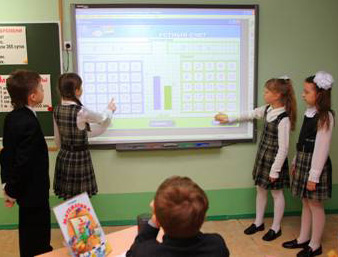

Volume:1, Issue: 2
Sep. 1, 2009


Sep. 1, 2009
Dear readers,
It is with great pleasure and not without a certain amount of anxiety that I am introducing this new issue to you. This is for the first time that we are starting to publish articles of American and Russian educators together in an attempt to stimulate a true dialogue between them. Studying American education for many years of my life in Russia, I always tried to bring the knowledge of Western education to Russian researchers and practitioners, to university professors and students. I always felt like it was my mission to introduce to Russian teachers new methods and strategies from the West, to acquaint them with numerous innovations in school structure- and culture-building and management. Many of my books and articles were devoted mostly to these issues. Now, when I live in the States, I experience a strong desire to inform English-speaking readers of outstanding achievements of past and present Russian education. It is so unfortunate that extremely rich Russian educational ideas, knowledge, and experience are almost totally unknown to most Western teachers and educators. It is no wonder that whenever I present about the unique work of the Yasnopolyanskaya school by Leo Tolstoy, the ideas and creations of Konstantin Ventsel and Victor Soroka-Rosinsky, educational findings and a personal fate of Vasily Sukhomlinsky, and finally about numerous modern outstanding school principals such as Vladimir Karakovsky, Yuri Zavelsky, etc. – this always keeps the audience’s undivided attention.
Bringing new knowledge to people is by itself a noble task but we are not planning to restrict the format of the journal by only “pouring” just facts in the heads of our readers. No, our idea and ideal is to organize and sustain a true dialogue between educators who live in different countries and speak different languages; we are ready to provide you, our dear readers, with a virtual and practically unlimited space to unfold a challenging and provoking discussion on different educational topics, interesting for both sides. I am happy to report that during the last few months our journal was seen and read by amazingly geographically diverse communities, which go far beyond our original target population in Russia and the USA. We have already had readers in Australia, Belgium, Canada, France, Germany, India, Israel, Ireland, Japan, Malta, Romania, Ukraine and the UK, and we very much hope that their numbers and diversity will increase over time.
Now let me explain in brief the idea of the special topic of this current journal that is devoted to education in the Perm region. This is the region where different Russian and Western educational findings and innovations are quickly accepted and adapted to local circumstances, and where people care about education and students. It is even more important to say that such an attitude is typical for practically all educational establishments in the region, starting with the top regional authorities. I have had the pleasure to meet and talk with a number of Perm researchers, educators, and teachers, to attend their presentations and to study their experience. My overall impressions have always been positive. One truly important feature of the region is an acceptance and concern to develop and expand non-state educational establishments. This is a sign of understanding the true socioeconomic needs of the educational field in general. It is also of no less importance to state that the city of Perm has been a pioneer of numerous educational innovations in educational theory and practice over the last two centuries in Russia.
Brought together under the umbrella of this special topic, “Perm articles”, although different in value, depth and length, provide a consistent impression of the regional education. It has become possible due to tremendous efforts of our guest editor, Professor Natalia Zahkarova, first vice-president of the largest regional non-state university, Prikamsky Social Institute, and Professor Nikolay Zahkarov, President of this university, who inspired the idea for this issue. It is not by accident that we have concentrated attention primarily on non-state education and vocational training as it is our belief that only in combination of state and non-state schools and colleges can the Russian system of education make a true breakthrough in its development, in all educational stages.
Finally, and without any extra words, I invite my dear readers to begin browsing and reading these journal pages. I look forward to receiving your feedback, suggestions, ideas, and opinions. And please remember, the sooner we start the dialogue across nations, the better education will be in the world.
Always yours,
Dr. Tatyana Tsyrlina-Spady,
Editor-in-Chief
tsyrlina@aol.com
Home | Copyright © 2026, Russian-American Education Forum